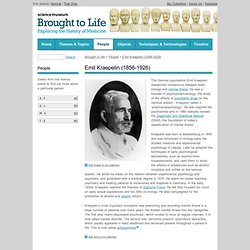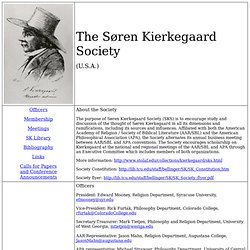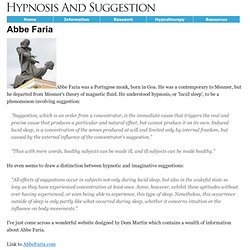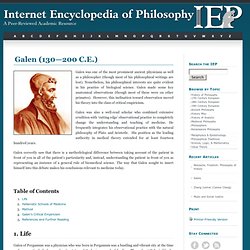

Emil Kraepelin. Emil Kraepelin (1856-1926) The German psychiatrist Emil Kraepelin researched connections between brain biology and mental illness.

He was a founder of psychopharmacology, the study of the effects of psychiatric drugs on the nervous system - Kraepelin called it ‘pharmacopsychology’. He also inspired the psychiatrists who in 1980 radically revised the Diagnostic and Statistical Manual (DSM), the foundation of today’s classification of mental illness. Kraepelin was born in Mecklenburg in 1856 and was introduced to biology early. He studied medicine and experimental psychology in Leipzig. Later he adapted the techniques of early psychological laboratories, such as reaction-time measurements, and used them to study the effects of substances such as alcohol, morphine and coffee on the nervous system. Kraepelin’s most important innovation was examining and recording mental illness in a large number of patients over many years. Jean-Martin Charcot. Human Intelligence: Jean-Martin Charcot. This page is now located at an updated address.

Please update your bookmarks! The new address is posted below. You will be redirected to the new page in 15 seconds or you can click the link below. Francis Galton. Sir Francis Galton F.R.S: 1822-1911. Soren Kierkegaard. The S ren Kierkegaard Society. Officers President: Edward Mooney, Religion Department, Syracuse University, efmooney@syr.edu Vice-President: Rick Furtak, Philosophy Department, Colorado College, rfurtak@ColoradoCollege.edu Secretary-Treasurer: Mark Tietjen, Philosophy and Religion Department, University of West Georgia, mtietjen@westga.edu.

Johann Friedrich Herbart. Abbé Faria. HypnosisAndSuggestion.org. Abbe Faria was a Portugese monk, born in Goa.

He was a contemporary to Mesmer, but he departed from Mesmer's theory of magnetic fluid. He understood hypnosis, or 'lucid sleep', to be a phenomenon involving suggestion: "Suggestion, which is an order from a concentrator, is the immediate cause that triggers the real and precise cause that produces a particular and natural effect, but cannot produce it on its own. Induced lucid sleep, is a concentration of the senses produced at will and limited only by internal freedom, but caused by the external influence of the concentrator's suggestion. ""Thus with mere words, healthy subjects can be made ill, and ill subjects can be made healthy. " He even seems to draw a distinction between hypnotic and imaginative suggestions: "All effects of suggestions occur in subjects not only during lucid sleep, but also in the wakeful state so long as they have experienced concentration at least once.
Link to AbbeFaria.com. René Descartes. Descartes, René: Overview René Descartes is often credited with being the “Father of Modern Philosophy.” This title is justified due both to his break with the traditional Scholastic-Aristotelian philosophy prevalent at his time and to his development and promotion of the new, mechanistic sciences. His fundamental break with Scholastic philosophy was twofold. First, Descartes thought that the Scholastics’ method was prone to doubt given their reliance on sensation as the source for all knowledge.
Second, he wanted to replace their final causal model of scientific explanation with the more modern, mechanistic model. Descartes attempted to address the former issue via his method of doubt. Once this conclusion is reached, Descartes can proceed to rebuild his system of previously dubious beliefs on this absolutely certain foundation. Table of Contents 1. René Descartes was born to Joachim Descartes and Jeanne Brochard on March 31, 1596 in La Haye, France near Tours. Galeno. Galen Galen was one of the most prominent ancient physicians as well as a philosopher (though most of his philosophical writings are lost).

Nonetheless, his philosophical interests are quite evident in his practice of biological science. Galen made some key anatomical observations (though most of these were on other primates). However, this inclination toward observation moved his theory into the class of critical empiricism. Galen was also a well-read scholar who combined extensive erudition with ‘cutting edge’ observational practice to completely change the understanding and teaching of medicine.
He frequently integrates his observational practice with the natural philosophy of Plato and Aristotle. Galen correctly saw that there is a methodological difference between taking account of the patient in front of you in all of the patient’s particularity and, instead, understanding the patient in front of you as representing an instance of a general rule of biomedical science.